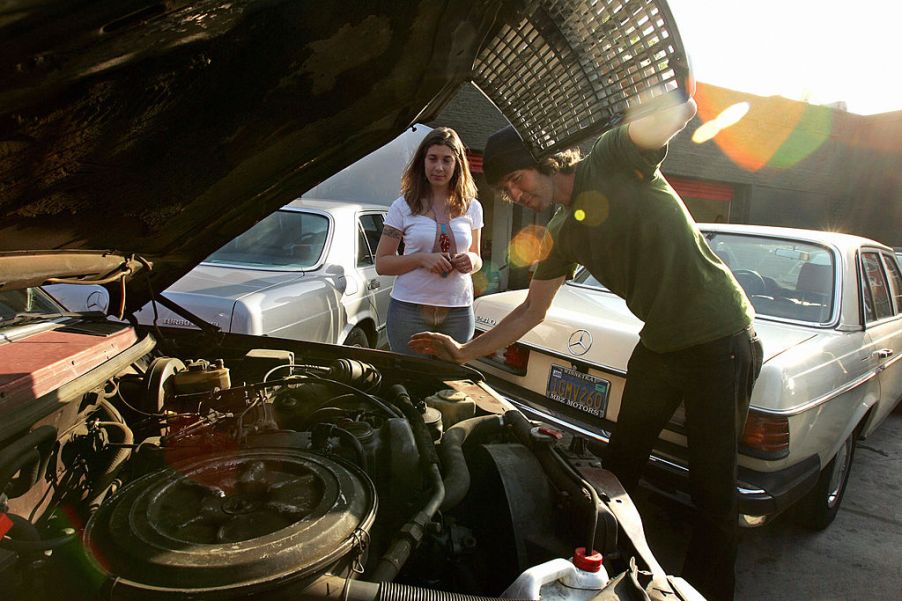
Simple Car Maintenance Tips To Save Money
Follow these simple car maintenance tips and you’ll save a bunch of money in the long term. Plus, you’ll have peace of mind knowing that you’re lessening the chance that little gremlins will pop up unexpectedly. Most of these are just basic dos and don’ts that you should always follow. And all of these simple car maintenance tips, for the most part, you can do yourself.
Use quality gasoline

We’re not advocating higher octane gasoline. What we mean is to get your gas from a clean, reliable source. Dirty underground tanks and off-brand gas can cause trouble for your car. Dirt in the gas can clog filters and injectors. And crappy gas can compromise engine performance. You don’t need higher octane fuel, for the most part, what you need is quality fuel that doesn’t end up fouling your fuel delivery.
Clean battery connections

You would be surprised at how poor grounds can lead to electrical problems. It is a simple fix to make sure your battery terminals are clean and making good contact. And we’re talking contact at both the battery but also where it ties into the car’s frame. You can follow the battery cable from the battery to where it bolts into the frame to make sure that the connection is clean and solid as well. Sometimes these ends can get frayed or collect corrosion. The corrosion weakens the cable which could stop making contact with the frame.
Pitch your “lifetime” air filters

It’s easy to check your air filter to see if it is dirty or clogged. Most of the “lifetime” filters need to be replaced regularly, though not at every oil change. Your engine is like a big pump. The more air going in and exhausting out the more power and performance you’ll get. The easier it is for the air to get to the combustion chambers to mix with atomized gasoline the better the combustion. So a free flow of air is essential to engine performance, and it’s an easy and cheap fix. And the same goes for fuel filters. Clogged fuel filters restrict the flow of gas so the fuel pump works harder. Follow your manufacturer’s recommended changes for fuel filters. This information is always in the user’s manual.
Check fluids if you can

Newer cars still have dipsticks for checking the engine oil. Over the years most automatic transmissions now have sealed off cases. The transmission fluid is checked through pressure readings with a gauge and at a certain temperature. The manual for checking transmission fluid in certain Toyota vehicles is 14 pages long. So the best bet is to follow recommended service changes with a dealer or reputable shop. Steering, brake, radiator, washer fluid, and oil can still be checked and should be regularly. Many people pick five thousand or ten thousand mile intervals for changing oil. That way it is easy to remember to do it.
Check tire pressure regularly

Most cars now have pressure sensors that will notify you if there is a tire with lower pressure. Sometimes this happens naturally and sometimes it means there is a leak from a puncture or the valve stem. Especially, if the pressure goes down on a particular tire regularly get it checked. You’ll also find that proper tire pressure helps the brakes stop evenly and keeps the tires from scrubbing the sidewalls in hard turns. Rotating tires can make them last much longer. We’ve heard of owners getting over 50,000 miles on a set of tires simply by rotating them regularly. To be honest most cars are out of alignment so tires receive irregular wear. By rotating it allows for the tires in the rear to take up some of the irregular wear on the front spreading out the need to replace them.



